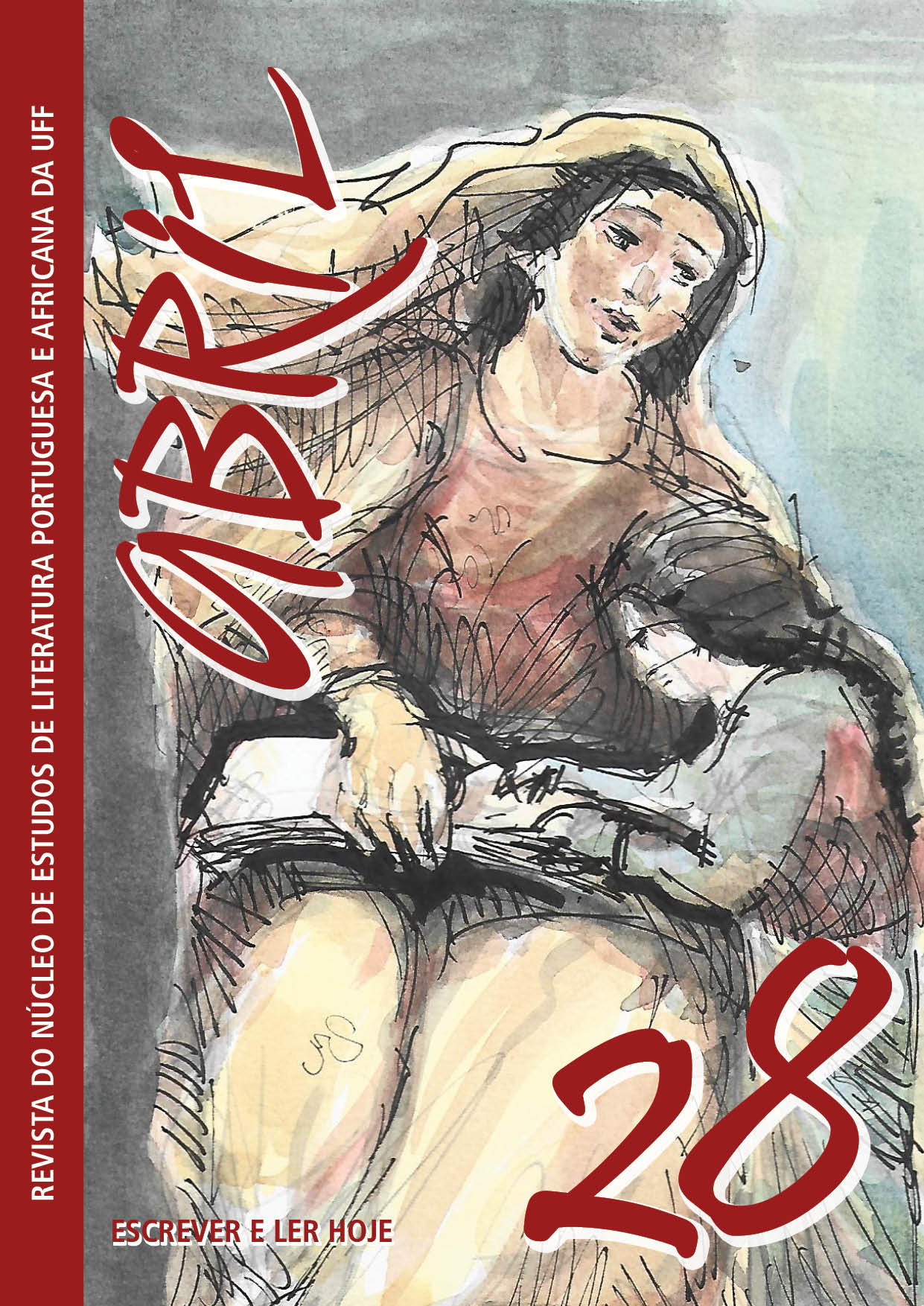Maria Judite de Carvalho e a justiça dos esquecidos
DOI:
https://doi.org/10.22409/abriluff.v14i28.52484Palavras-chave:
Maria Judite de Carvalho, Esquecidos, Melancolia, Perséfone, AgambenResumo
O esquecido é, para Giorgio Agamben (1999, p. 72-73), aquele que busca a justiça, não para ser entregue à memória e à língua, mas para permanecer imemorável e sem nome. Fazer justiça ao esquecido será, portanto, falar de seres desprovidos de importância e mesmo de existência, marcados pelo vazio e pela falta, mergulhados no desespero de suas vidas nuas, como são as personagens de Maria Judite de Carvalho. Estuda-se aqui a obra dessa escritora portuguesa que faz justiça aos esquecidos, exibindo a falta de sentido que somente a literatura – arte do intervalo desligada de pragmatismo e desvinculada de esperanças – pode elaborar com os artifícios e as trapaças de Perséfone e de Orfeu, em seu trânsito entre morte e vida, com a melancolia e a negatividade características de sujeitos presos em seus espaços concentracionais de banimento e exclusão. Lembra-se, assim, a perspectiva de Blanchot de que a obra literária é prova de impossibilidade de união, repetição nunca terminada, saciedade que nada tem, cintilação sem fundamento e sem profundidade. Aparentemente, nada a fazer: não há soluções a esperar, não há integração possível; para os esquecidos, não há possibilidade de resgate. Sabe-se, entretanto, com Almansi (1978): escritores e poetas são mágicos, a linguagem e a poesia impedem um sentido claro e definitivo e podem assim garantir, com os cantos de Orfeu e as máscaras de Perséfone, a vida e a prosperidade da literatura.
Downloads
Referências
AGAMBEN, Giorgio. Ideia da prosa. Trad., pref. e notas de João Barrento. Lisboa: Cotovia, 1999.
AGAMBEN, Giorgio. Os fantasmas de Eros. In: Estâncias – a palavra e o fantasma na cultura ocidental. Trad. Selvino José Assmann. Belo Horizonte; Editora UFMG, 2007, pp. 21-56.
ALMANSI. Guido. L’affaire mystérieuse de l’abominable tongue-in-cheek. Poétique. Paris, n 36, p. 413-426, nov. 1978.
BLANCHOT, Maurice. “Não haverá chance de acabar bem”. In: O livro por vir. Trad. Leyla Perrone-Moisés. São Paulo: Martins Fontes, 2005, pp. 37-46.
BUESCU, Helena Carvalhão. Somos todos Homines Sacri: uma leitura agambiana de Maria Judite de Carvalho. In: DUARTE, Lélia Parreira (org.) De Orfeu de Perséfone: morte e literatura. Cotia, SP: Ateliê Editorial; Belo Horizonte, MG: Editora PUC Minas, 2008, pp. 209-233.
CARVALHO, Maria Judite de. Obras completas. Lisboa: Minotauro, 2019, vol. V.
DUARTE, Lélia Parreira. Ironia e humor na literatura. Belo Horizonte: PUC Minas; São Paulo: Alameda, 2006.
DUARTE, Lélia Parreira. Maria Judite de Carvalho: Seta despedida não volta ao arco. In: DUARTE, Lélia Parreira (Org.) De Orfeu e de Perséfone- morte e literatura. Cotia,SP: Ateliê Editorial; Belo Horizonte, MG: Editora PUC Minas, 2008, pp. 253-265.
LEVY, Tatiana Salem. A experiência do Fora: Blanchot, Foucault, Deleuze. Rio de Janeiro: Relume-Dumará, 2003.
LOPES, Silvina Rodrigues. “Sobre-viver: O Inacabado”. Românica 15. Lisboa: Colibri, 2006, pp. 139-146.
Downloads
Publicado
Edição
Seção
Licença
Copyright (c) 2022 Abril – NEPA / UFF

Este trabalho está licenciado sob uma licença Creative Commons Attribution-NonCommercial 4.0 International License.
Autorizo a Revista Aabril - NEPA/UFF a publicar o artigo que ora submeto, de minha autoria/responsabilidade, caso seja aceito para publicação online. Declaro, ainda, que esta contribuição é original, que não está sendo submetida a outro editor para publicação, e assino a presente declaração como expressão da verdade.
Os trabalhos publicados no espaço virtual da Revista Abril serão automaticamente cedidos, ficando os seus direitos autorais reservados à Revista Abril. Sua reprodução, total ou parcial, é condicionada à citação dos autores e dos dados da publicação.

A Revista Abril utiliza uma Licença Creative Commons - Atribuição-NãoComercial 4.0 Internacional (CC BY-NC 4.0).









